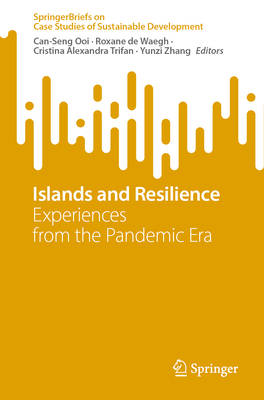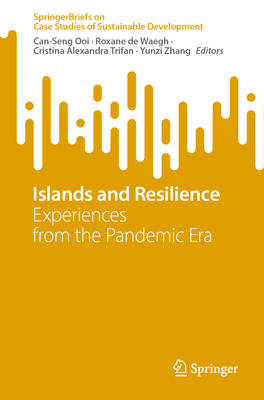
- Afhalen na 1 uur in een winkel met voorraad
- Gratis thuislevering in België vanaf € 30
- Ruim aanbod met 7 miljoen producten
- Afhalen na 1 uur in een winkel met voorraad
- Gratis thuislevering in België vanaf € 30
- Ruim aanbod met 7 miljoen producten
Islands and Resilience
Experiences from the Pandemic Era
Omschrijving
This book explores island resilience and how island communities come together to achieve wellbeing, have agency over their future and resist ongoing neo-colonialism during disruptive events such as COVID-19 and the increasing threats of climate change. This collection provides examples of lived experiences and the responses of island communities, many of them based in tourism-reliant locations. These examples are based on intensive research by a team of diverse academics and practitioners. The chapters offer case studies that interrogate theories related to resilience, wellbeing and social inclusion and provide cutting-edge insights that demonstrate the multifaceted complexity of island resilience.
This book examines the islands, their developing economy and social development themes. It is relevant for academic researchers, students, and practitioners interested in the multiple components that contribute to the resilience of island communities, including community development, economic development, tourism, disaster response, community wellbeing, social justice, globalisation, decolonisation, and neoliberal governance in island communities. As many of the island economies examined are also developing island-states, this volume is also essential to scholars investigating economies in transition. The collection is truly interdisciplinary and offers state-of-the-art knowledge on island communities and their resilience.Specificaties
Betrokkenen
- Uitgeverij:
Inhoud
- Aantal bladzijden:
- 80
- Taal:
- Engels
- Reeks:
Eigenschappen
- Productcode (EAN):
- 9789811999666
- Verschijningsdatum:
- 30/03/2023
- Uitvoering:
- Paperback
- Formaat:
- Trade paperback (VS)
- Afmetingen:
- 156 mm x 234 mm
- Gewicht:
- 145 g

Alleen bij Standaard Boekhandel
Beoordelingen
We publiceren alleen reviews die voldoen aan de voorwaarden voor reviews. Bekijk onze voorwaarden voor reviews.










